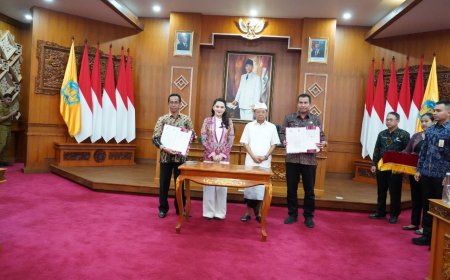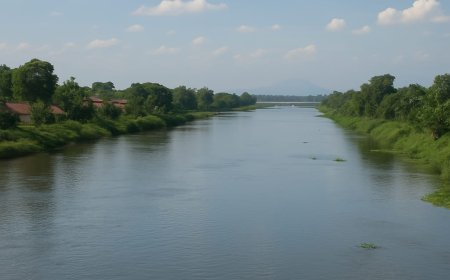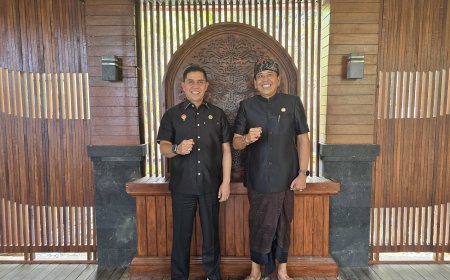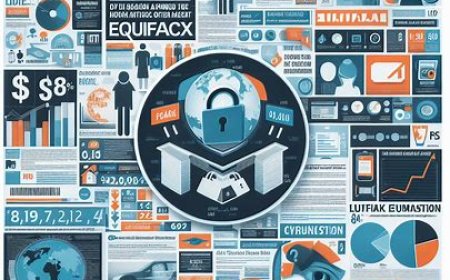On Sunday, May 19, 2024, Elon Musk, the founder and owner of Tesla and Starlink, arrived in Bali not only to attend the 10th World Water Forum held in Bali but also to inaugurate the launch of Starlink services in Indonesia. The inauguration will take place at Puskesmas Pembantu Sumerta Kelod, East Denpasar, Denpasar City. The event will be attended by the founder and owner of Starlink, as well as President Joko Widodo and several ministers.
Satellite internet services like Starlink are undoubtedly very beneficial for the country, as there are still many areas without internet access. Utilizing satellite internet connections has positive impacts, one of which is serving 3T (remote, outermost, and underdeveloped) areas that are more challenging to reach with fiber optic or radio media. Wherever the location that requires an internet connection, whether it's on mountain tops, in the middle of dense forests, or in the middle of the ocean, they can still enjoy the internet with satellite services like this.
One public facility that will benefit from satellite internet services is the health sector. The launch of Starlink services will take place at one of the Puskesmas in Denpasar City. According to the Minister of Health, out of the 10,000 Puskesmas in Indonesia, 2,700 have poor internet connectivity, and 700 Puskesmas do not have internet connections at all.

Dr. Pratama Persadha, Chairman Lembaga Riset Keamanan Siber CISSReC
Another sector that will benefit is the education sector, as there are still many schools in remote areas that have not been reached by the internet, causing educational disparities. The knowledge that students can gain is limited to what the teachers, who are dedicated to advancing education in the 3T areas, can provide.
With satellite internet services, the digital economy in Indonesia can be boosted because regions that previously could only engage in traditional trade can now use the internet for buying and selling goods. Another impact is reducing the information gap, as they can access information faster and seek information from reliable sources.
However, amid the excitement of the inauguration of Starlink services in Indonesia, which seems to receive a red carpet from the government in hopes of bringing investment to Indonesia—from the quick licensing process, being greeted by a minister at the airport, to the inauguration attended by the president—there are still several issues regarding the Starlink services.
One controversy is that the NOC (Network Operations Center) of Starlink, which serves customers in Indonesia, is not yet located in Indonesia but is still supported from an overseas NOC. This is somewhat understandable because establishing an NOC in Indonesia would incur higher investment costs, especially in the initial years when there might not be many customers yet.
The location of the NOC is not related to digital sovereignty or cyber security in Indonesia because the NOC's function is to monitor Starlink's infrastructure to ensure that services are not disrupted. However, having a Starlink NOC in Indonesia would make it easier for the government to collaborate with Starlink if joint actions, such as combating online gambling and pornography, are needed.
Even though Starlink's NOC is not yet established in Indonesia, Starlink has partnered with local NAP (Network Access Provider) for its internet backbone services to obtain ISP (Internet Service Provider) licenses. This allows necessary actions to enhance national defense and security during crises, such as interception or censorship, to be carried out through NAP companies that provide internet backbone services to Starlink. This is better than the previous situation where Starlink did not want to cooperate with local NAPs and would use Laser Link connecting its satellites as the internet backbone for services in Indonesia, which would leave the government unable to do anything since the infrastructure used would not comply with Indonesian regulations and laws.
It is important to note that Starlink is a foreign company. To fully maintain digital sovereignty, critical sectors such as health services (as served by Starlink during the service launch) or national defense and security, like border posts or critical infrastructure sectors, should avoid using these services. If satellite internet is the only option, VSAT services provided by local ISPs can be used.
Several potential threats could arise from using Starlink services. Significant dependence on satellite internet services operated by foreign companies could lead to less direct control over the infrastructure, meaning the country may not be able to take necessary actions during emergencies or conflicts. Excessive reliance on foreign-operated satellite internet services could make the country more vulnerable to foreign interference in its communication infrastructure operations. The country might not have full control over the network, including the ability to stop or redirect services according to national policies in emergencies. If access to these services is disrupted or terminated by a foreign country or malicious entities, it could hinder the country's ability to coordinate and take effective action in emergencies or conflicts. Satellite internet services are crucial for communication and coordination between government and military institutions. Disruption or termination of access to these services by foreign countries could interfere with vital functions involving national security, such as disaster response coordination, military actions, or law enforcement.
This dependency is not merely hypothetical. Starlink has previously leveraged a country's dependence to benefit its company. On February 28, 2022, Starlink provided free internet access to the Ukrainian government. After the Ukrainian government had used this service for a long time and had become dependent on it, on September 30, 2022, Starlink terminated its services, which posed a significant threat to Ukrainian soldiers in the battlefield as Starlink was used for communication with soldiers on duty.
Another potential threat to cyber sovereignty is unauthorized access, where foreign countries or malicious entities may attempt to access satellite infrastructure for harmful purposes, such as espionage or cyber attacks. Therefore, the security of satellite infrastructure must be tightly maintained to prevent unauthorized access. Cyber threats to satellite infrastructure can become serious problems. Successful cyber attacks can disrupt satellite operations, damage or disable satellites, steal important information, or disrupt communications.
Moreover, the rapid development of Starlink also presents new challenges for law enforcement and intelligence agencies, as the lawful intercept and monitoring tools they currently have will become obsolete due to the different technology used. This makes it seem as if law enforcement and intelligence agencies are blind and deaf to communications passing through Starlink. Although lawful intercept and monitoring activities can still be conducted through local NAPs where Starlink purchases bandwidth, there is no guarantee that Starlink will only use internet bandwidth from local NAPs. Starlink can utilize its "Laser Link" system that connects its satellites, which can also be used to provide internet backbone, so even without cooperating with local NAPs, Starlink can still provide its internet backbone. Additionally, a single laser link can carry internet traffic up to 100 Gbps.
Another controversy is the potential use of satellites for physical attacks, such as attacking the new capital city (IKN) by altering satellite orbits and crashing them into critical infrastructure serving IKN, like PLN substations or Pertamina refineries, or dropping satellites on government centers, which could cause many casualties and even threaten the lives of the president and ministers. Although satellites do not have warheads like long-range rockets, their fall would still cause significant damage since satellites in Low Earth Orbit still have physical remnants despite some burning up in the atmosphere. This is not impossible, as in 2006, a famous hacker named Jim Geovedi successfully hacked and altered the orbits of satellites belonging to China and Indonesia.
The internet business in Indonesia also faces controversy. Although the cost of using Starlink internet is still high, Starlink plans to lower the subscription cost to below 100,000 rupiahs within two or three years, possibly offering cheap or even free equipment, which could cripple the business of local ISPs due to price and service competition.
Therefore, the government needs to ensure that Starlink complies with the previously set requirements so that we can maintain digital sovereignty even with Starlink in Indonesia. We must ensure that Starlink still adheres to these requirements in the future, such as ensuring that internet traffic in Indonesia through Starlink is routed only through local NAPs and not using laser links as the backbone for Starlink services in Indonesia.


























































